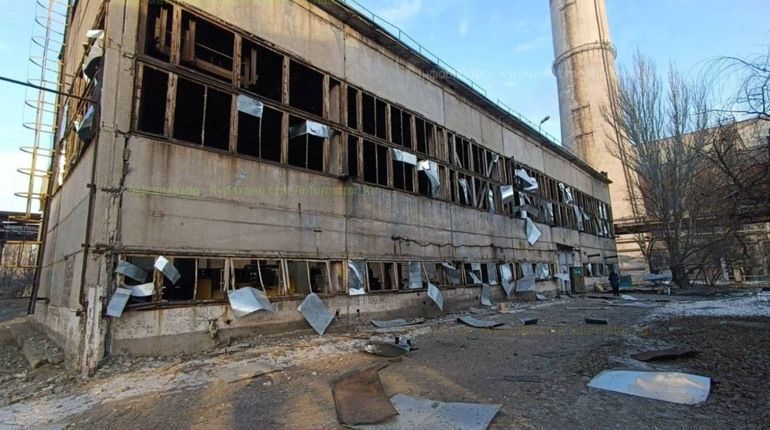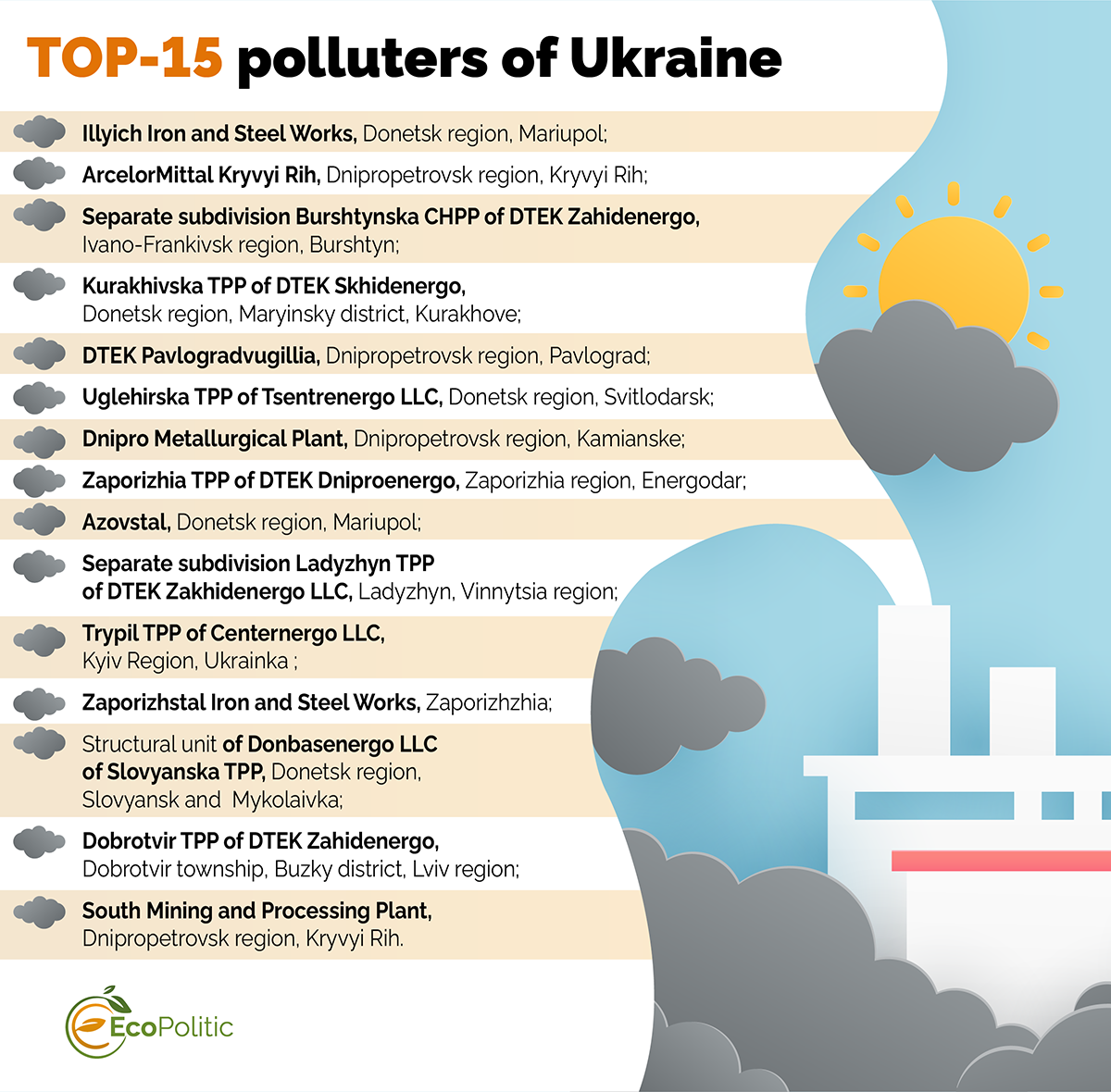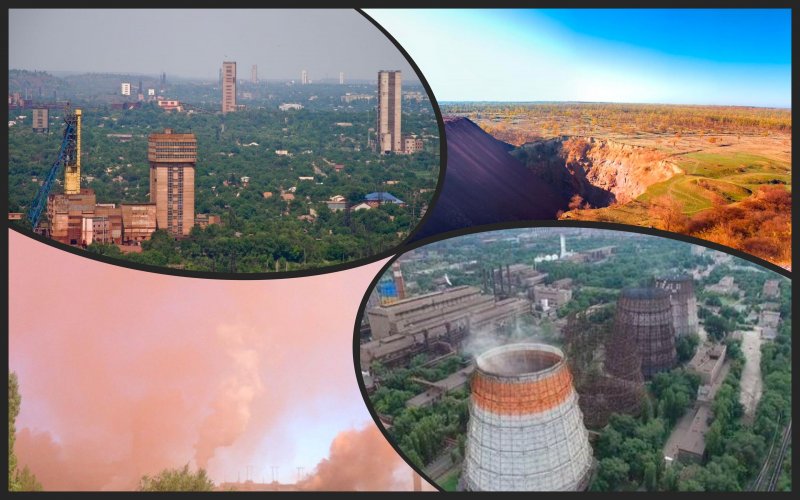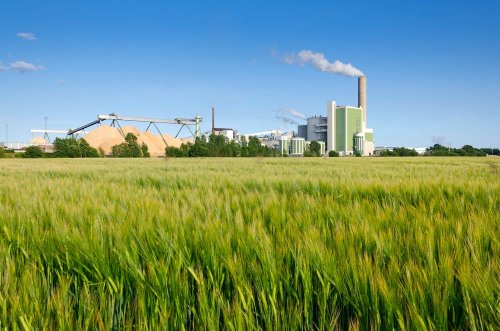In Ukraine, part of the enterprises that were traditionally included in the TOP-15 polluters of the environment in terms of emissions into the atmospheric air were destroyed due to the war, completely or partially stopped their activities. Metallurgical plants have reduced production and are operating at sub-capacity, but their emissions continue to threaten human health and the environment, especially during production expansion.
Read more about how the year of the war affected the biggest polluters in the EcoPolitic article.
Traditionally, the leaders among polluters were Ilyich Iron and Steel Works and Azovstal in Mariupol, ArcelorMittal in Kryvyi Rih, as well as Burshtynska TPP in the city of Burshtyn in the Ivano-Frankivsk region. Russian troops completely destroyed the Azovstal plant, partially destroyed the Ilyich Iron and Steel Works plant, and the Burshtynskaya TPP was subjected to systematic rocket attacks.
After the destruction of Donetsk region's industry, the city of Kryvyi Rih itself became the largest center of industrial pollution in Ukraine. After all, its industry includes 87 large enterprises of various branches, in particular, ferrous metallurgy, machine-building, building materials, chemical, woodworking, etc.
As Anna Ambrosova, an environmentalist from the public organization "It's enough to poison Kryvyi Rih", told in an exclusive comment for EcoPolitics, the number of emissions in the city has decreased over the last year, because enterprises lost significant capacity due to the war. Currently, the public does not have access to open statistical information, so it is currently impossible to know exactly how emissions have decreased.
The biggest polluter of Kryvyi Rih is the metallurgical enterprise ArcelorMittal Kryvyi Rih.
"In January 2023 ArcelorMittal reported on the long-awaited closure of the agglomeration factory of metallurgical production. For many years, DTKR insisted on the closure of this outdated equipment. The company did not invest in its modernization and constantly postponed its closure. Despite the fact that ArcelorMittal Kryvyi Rih has already re-received permits for production emissions several times, and in each of these permits there was a condition for the closure of the agglomeration factory of metallurgical production," said Ambrosova.
Currently, the company is operating at about 20% of its capacity, but the company has announced plans to increase production to 50%. This caused concern among eco-activists.
Ambrosova explained that the resumption of the enterprise's activity is always associated with excessive emissions, until the production "comes to normal".
Among the most important steps towards the eco-modernization of Ukrainian industry, Ambrosova named the introduction of the best available technologies and management methods (BATM), which is one of the conditions for Ukraine's European integration.
In February 2023, the Ministry of Environmental Protection and Natural Resources held a round table with business and public representatives to discuss the first three translated documents of the BATM. These BATM relate to modern standards of eco-modernization in the fields of energy efficiency, production of iron, steel, cement and lime. However, representatives of international business, such as ArcelorMittal, prevent these processes due to the significant costs of implementing BATM and are afraid of eco-modernization.
"Most of the processes and technologies provided for by the BATM are not very expensive and should have been supported by Ukrainian enterprises long ago, because they were also in our regulatory documents and were a condition for the implementation of activities when obtaining emission permits," the environmentalist emphasized.
Among such technologies, she named:
- reliable dust suppression;
- road irrigation;
- transportation of bulk materials covered.
Ambrosova noted that these processes are not new for Ukraine, but impossible for entrepreneurs.
She also emphasized that everything in the environment is connected and air emissions eventually settle, contaminating soils, including agricultural and water resources, which are also negatively affected by the city's industry, mines, mining and tailings. This reduces the yield, which in the realities of war increases the risks of a food crisis.
The environmentalist said that Kryvyi Rih enterprises divert hypersaline mine waters to special tailings storage facilities, in particular to the Svystunov beam. In the inter-vegetation period (the period when plants do not grow and bear fruit), these waters are discharged into the Ingulets River, which is then washed by fresh water from the Karachuniv Reservoir. However, in 2022, because of the war, the river was not washed, because the control post is located in the village of Andriivka, where the front line was at that time.
She emphasized that the waters of the Ingulets River downstream are used to irrigate agricultural fields in Kherson and Mykolaiv regions. Due to the fact that the river was not washed, the crops grown in the fields became salty.
"This leads to impoverishment and salinization of the soil, as well as to a decrease in productivity," the environmentalist explained the long-term consequences.
ArcelorMittal's environmental problems are not unique to Ukraine. Thus, due to the activities of the "Ilva" steel plant in Taranto, Italy, oncological diseases among children occur 50% more often than in other parts of the region. ArcelorMittal was also accused of air pollution in South Africa, and the environmental manager of ArcelorMittal South Africa, Johan Hutting, was brought before a court in the city of Vanderbeilpark for violating environmental legislation.

Kurakhivska TPP. Consequences of shelling on February 9
TOP-15 polluters of Ukraine (data from the Ministry of Environment):
- Ilyich Iron and Steel Works, Donetsk region, Mariupol;
- ArcelorMittal Kryvyi Rih, Dnipropetrovsk region, Kryvyi Rih;
- Separate subdivision Burshtynska CHPP of DTEK Zahidenergo, Ivano-Frankivsk region, Burshtyn;
- Kurakhivska TPP of DTEK Skhidenergo, Donetsk region, Maryinsky district, Kurakhove;
- DTEK Pavlogradvugillia, Dnipropetrovsk region, Pavlograd;
- Uglehirska TPP of Tsentrenergo LLC, Donetsk region, Svitlodarsk;
- Dnipro Metallurgical Plant, Dnipropetrovsk region, Kamianske;
- Zaporizhia TPP of DTEK Dniproenergo, Zaporizhia region, Energodar;
- Azovstal, Donetsk region, Mariupol;
- Separate subdivision Ladyzhyn TPP of DTEK Zakhidenergo LLC, city of Ladyzhyn, Vinnytsia region;
- Trypil TPP of Centernergo LLC, Kyiv Region, Ukrainka City;
- Zaporizhstal Iron and Steel Works, Zaporizhzhia;
- Structural unit of Donbasenergo LLC of Slovyanska TPP, Donetsk region, Slovyansk and the city of Mykolaivka;
- Dobrotvir TPP of DTEK Zahidenergo, Dobrotvir township, Buzky district, Lviv region;
- South Mining and Processing Plant, Dnipropetrovsk region, Kryvyi Rih.

War is a serious reason for postponing the terms of eco-modernization, but not for its termination or cancellation. This is especially true of international giants such as ArcelorMittal, which do business around the world and have the opportunity to direct excess profits to improve the environment and the health of people in local communities. The post-war recovery will necessarily be green in energy, utilities, and industry.





